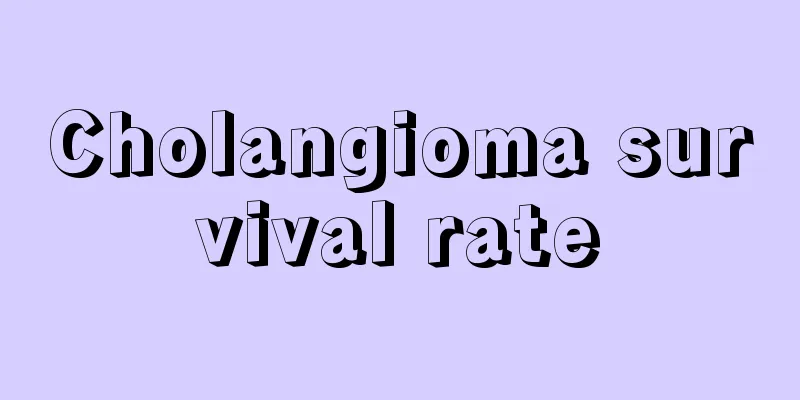What are the treatment principles for hamartoma

|
The symptomatic treatment of hamartoma is critical to the cure of the patient's condition. No matter which symptomatic treatment method is used, there will be certain treatment principles. In order to allow more patients to have a deeper understanding of the treatment methods of hamartoma and be prepared for medical treatment, let me introduce to you what are the treatment principles of hamartoma? Hamartoma, also known as renal angiomyolipoma, is a benign tumor. It can be a single disease or a manifestation of tuberous sclerosis. According to foreign reports, about half of patients diagnosed with renal hamartoma have tuberous sclerosis, which is a hereditary disease with a familial tendency, manifested as brain dysplasia, epilepsy, and cheek sebaceous adenoma. Hamartoma can also occur in the brain, eyes, heart, lungs, and bones, and can sometimes be mistaken for metastatic lesions. It is relatively rare for patients with renal hamartoma in my country to have tuberous sclerosis. The principles of treatment for renal hamartoma are as follows: 1. Renal angiomyolipoma is a benign tumor. Small tumors can be followed up for a long time without treatment. 2. If the tumor is large and tends to grow or is accompanied by pain, partial nephrectomy or simple tumor resection may be performed. 3. During surgery for bilateral renal tumors, as much renal tissue as possible should be preserved. In accordance with the treatment principles of renal hamartoma, the medical treatment measures for renal hamartoma are as follows: 1. Observation Oesterling believed that tumors <4 cm can be left untreated, but close follow-up is required. Johns Hopkins reported a group of 35 cases, some of which did not continue to grow for many years. Steiner advocated that patients <4 cm should be followed up once a year even if they are asymptomatic; patients >4 cm should be followed up once every six months if they are asymptomatic or have mild symptoms. 2. Arterial embolization should be considered first in cases of bleeding. According to experience, the volume of the tumor does not decrease after embolization, but the bleeding can be stopped. Superselective renal artery branch embolization is often used to protect some renal function. 3. Nephron-sparing surgery: Tumors <5cm can be enucleated, especially those at the edge of the kidney. However, some tumors have unclear capsules, irregular shapes, and unclear interfaces, making enucleation unsafe. In this case, partial nephrectomy can be performed. 4. Nephrectomy: Giant renal hamartomas can be treated with nephrectomy. If the disease is bilateral, more consideration should be given to the preservation of renal function. In a few cases, there may be local and lymph node invasion, or even tumor thrombus invasion of large veins, showing malignant behavior, and radical nephrectomy should be performed. 5. Kidney transplantation or hemodialysis is only suitable for patients who must undergo bilateral nephrectomy due to bilateral lesions leading to renal failure or tumor rupture and bleeding. |
<<: How to completely treat hamartoma
>>: Factors affecting the price of hamartoma treatment
Recommend
How long is the average life expectancy of bladder cancer T2a
The survival time of patients with stage T2a blad...
High fever and stomach ache but no diarrhea
Traditional Chinese medicine believes that high f...
Can a perforated eardrum be cured? You should know these things
Eardrum perforation is also known as tympanic mem...
How long can I live with swollen hands and feet in the late stage of lung cancer?
How long can you live with swollen hands and feet...
What are the main symptoms of thyroid cancer
The main symptoms of thyroid cancer include neck ...
Is Hodgkin's lymphoma hereditary?
Is Hodgkin's lymphoma hereditary? This lympho...
Severe facial redness and swelling? This will reduce swelling!
Many women will have redness and swelling on thei...
Can I soak my feet in vinegar for gout?
Gout is a common condition in the human body. The...
Do you know the side effects of Ganoderma lucidum spore powder?
Although Ganoderma lucidum spore powder has many ...
Can drinking lemon water help sober you up?
People's lives nowadays are becoming more and...
What to do if you swallow a date pit
When you were a child, did you accidentally swall...
What are the early causes of esophageal cancer
There are many causes of esophageal cancer, and m...
What does burning ears mean
Ear heat is a common phenomenon. Some people say ...
Why does my cervix hurt during menstruation?
The phenomenon of menstruation often makes women ...
How to use your hips to do squats
Squats are a very common exercise method. Nowaday...









